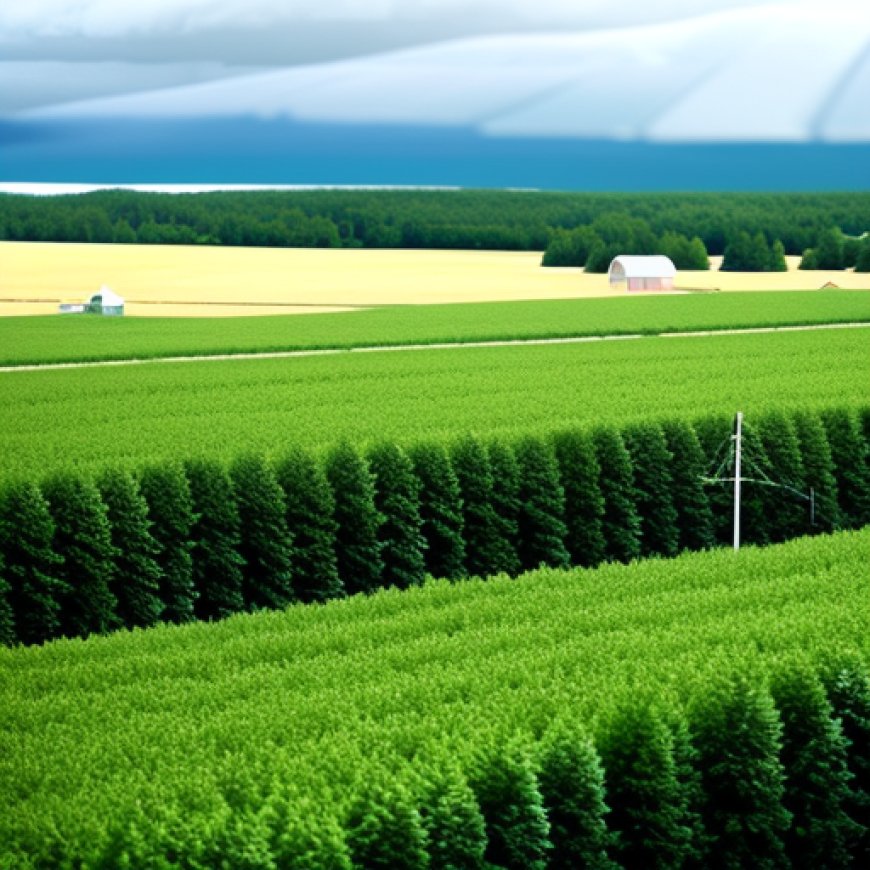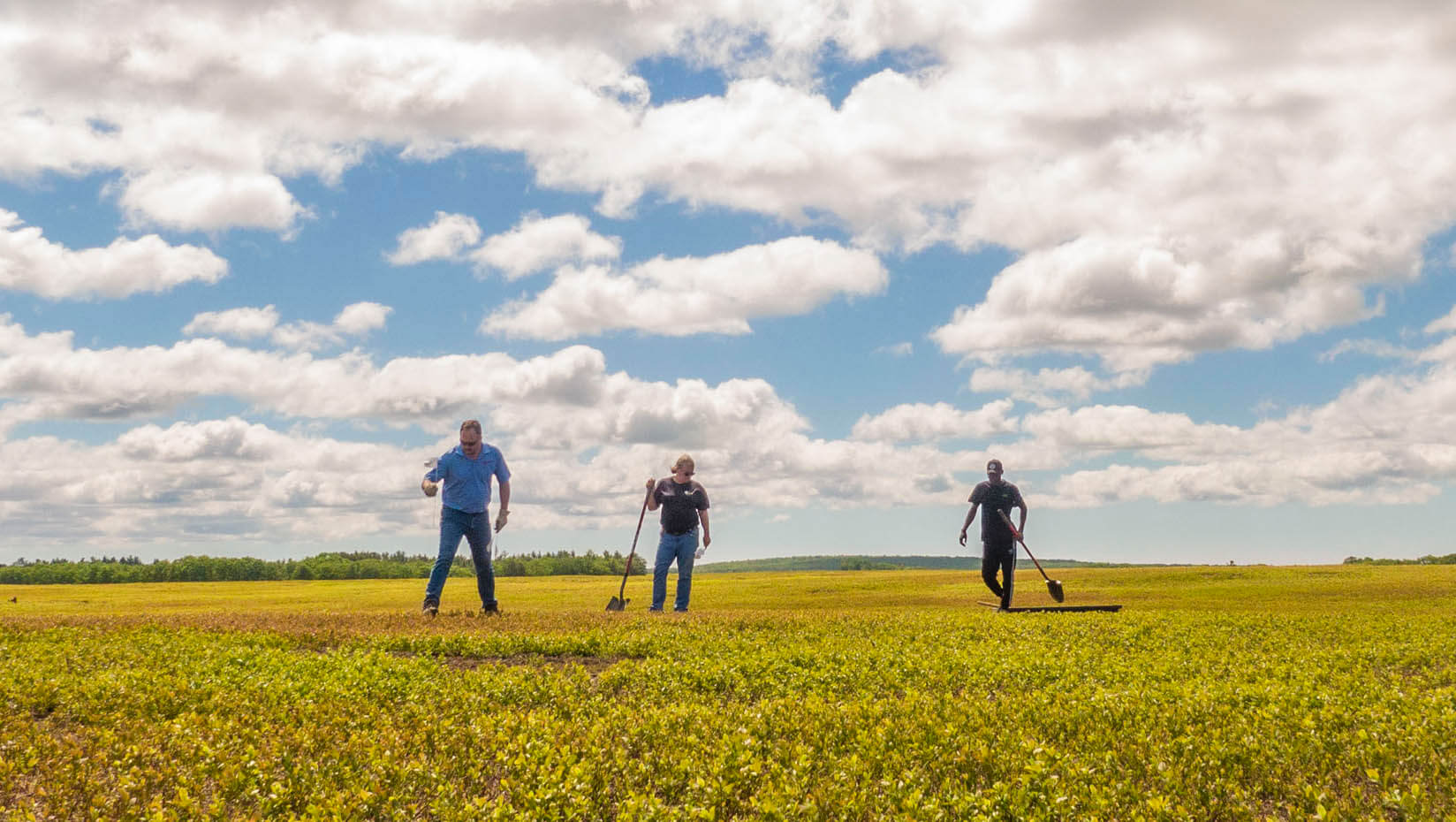UMaine granted $1.5M from USDA to assist farmers and agricultural advisers with climate adaptation and mitigation – UMaine News – University of Maine
UMaine granted $1.5M from USDA to assist farmers and agricultural ... University of Maine


USDA Grant Supports Climate Adaptation and Mitigation Programs for Farmers

Introduction
The U.S. Department of Agriculture (USDA) has granted $1.5 million to the University of Maine and collaborators to carry out a series of programs that will educate and aid farmers in climate adaptation and mitigation.
Program Overview
Agricultural producers anticipate an onslaught of challenges due to climate change, such as increases in flooding, drought, pest and disease pressures, and weather variability. Faculty and staff at UMaine have developed a three-part program to prepare farmers to deal with these difficulties. This project has been developed in close partnership with the USDA Northeast and Midwest climate hubs, the USDA National Agroforestry Center, Rutgers University, the University of Vermont, American Farmland Trust, the Maine Organic Farmers and Gardeners Association, and Michigan State University.
Climate Adaptation and Mitigation Fellowship (CAMF) Program
Rachel Schattman, assistant professor of sustainable agriculture at the School of Food and Agriculture, is one of the designers of the Climate Adaptation and Mitigation Fellowship (CAMF) program. The project will focus on educating farmers and their communities about climate science and management strategies by running three 24-month-long peer-to-peer learning programs on a variety of farms in the Midwest and Northeast. The first program will focus on row crop producers and advisers in the Midwest, the second program will focus on female vegetable and small fruit producers and advisers in the Midwest and Northeast, and the third will focus on diversified and agroforestry producers and advisers in the Northeast.
Collaborative Approach
“We’re very excited to expand our curriculum to be useful to several different types of land managers and the agricultural advisers who support them,” says Schattman. “The unique aspect of the CAMF program is that farmers and advisers work closely in pairs over two years to develop risk assessments, climate adaptation and mitigation plans, and more. We find that this creates a community in which farmers and advisers can learn from each other and support one another.”
Workshops and Support
Pairs of farmers and agricultural advisers, referred to as “fellows,” will attend workshops based on climate science, weather and climate information, risk assessments, adaptation, and mitigation planning to give them the tools to cooperatively create an effective management plan. Each program introduced in this project will be backed by an education team and a program coordinator. Those groups are also supported by a CAMF project coordinator, a leadership team, and the advisory committee. The collaborators working on these teams come from nonprofit organizations, Extension services, state or federal agencies, and private companies.
Expert Involvement
Sean Birkel, Maine state climatologist and assistant professor with a joint appointment in University of Maine Cooperative Extension and the UMaine Climate Change Institute, is also involved in the project. “Data underlies the development of effective climate adaptation and mitigation strategies,” says Birkel. “I am eager to collaborate with the project team and fellows, and to help make climate and weather information readily available to farming communities as they undertake this important work.”
Contact Information
Contact: Sam Schipani, samantha.schipani@maine.edu
SDGs, Targets, and Indicators
-
SDG 13: Climate Action
- Target 13.1: Strengthen resilience and adaptive capacity to climate-related hazards and natural disasters
- Target 13.2: Integrate climate change measures into national policies, strategies, and planning
- Target 13.3: Improve education, awareness-raising, and human and institutional capacity on climate change mitigation, adaptation, impact reduction, and early warning
The article discusses the $1.5 million grant from the USDA to the University of Maine for programs that will educate and aid farmers in climate adaptation and mitigation. This directly addresses the issue of climate change and its impact on agricultural producers. The programs aim to strengthen resilience and adaptive capacity to climate-related hazards, integrate climate change measures into national policies and planning, and improve education and awareness on climate change mitigation and adaptation.
-
SDG 4: Quality Education
- Target 4.7: By 2030, ensure that all learners acquire the knowledge and skills needed to promote sustainable development
The article mentions the Climate Adaptation and Mitigation Fellowship (CAMF) program, which focuses on educating farmers and their communities about climate science and management strategies. This program contributes to the target of ensuring that all learners acquire the knowledge and skills needed to promote sustainable development.
Table: SDGs, Targets, and Indicators
| SDGs | Targets | Indicators |
|---|---|---|
| SDG 13: Climate Action | Target 13.1: Strengthen resilience and adaptive capacity to climate-related hazards and natural disasters | Programs to educate and aid farmers in climate adaptation and mitigation |
| SDG 13: Climate Action | Target 13.2: Integrate climate change measures into national policies, strategies, and planning | Development of risk assessments, climate adaptation and mitigation plans |
| SDG 13: Climate Action | Target 13.3: Improve education, awareness-raising, and human and institutional capacity on climate change mitigation, adaptation, impact reduction, and early warning | Education programs on climate science and management strategies |
| SDG 4: Quality Education | Target 4.7: By 2030, ensure that all learners acquire the knowledge and skills needed to promote sustainable development | Climate Adaptation and Mitigation Fellowship (CAMF) program |
Behold! This splendid article springs forth from the wellspring of knowledge, shaped by a wondrous proprietary AI technology that delved into a vast ocean of data, illuminating the path towards the Sustainable Development Goals. Remember that all rights are reserved by SDG Investors LLC, empowering us to champion progress together.
Source: umaine.edu

Join us, as fellow seekers of change, on a transformative journey at https://sdgtalks.ai/welcome, where you can become a member and actively contribute to shaping a brighter future.







